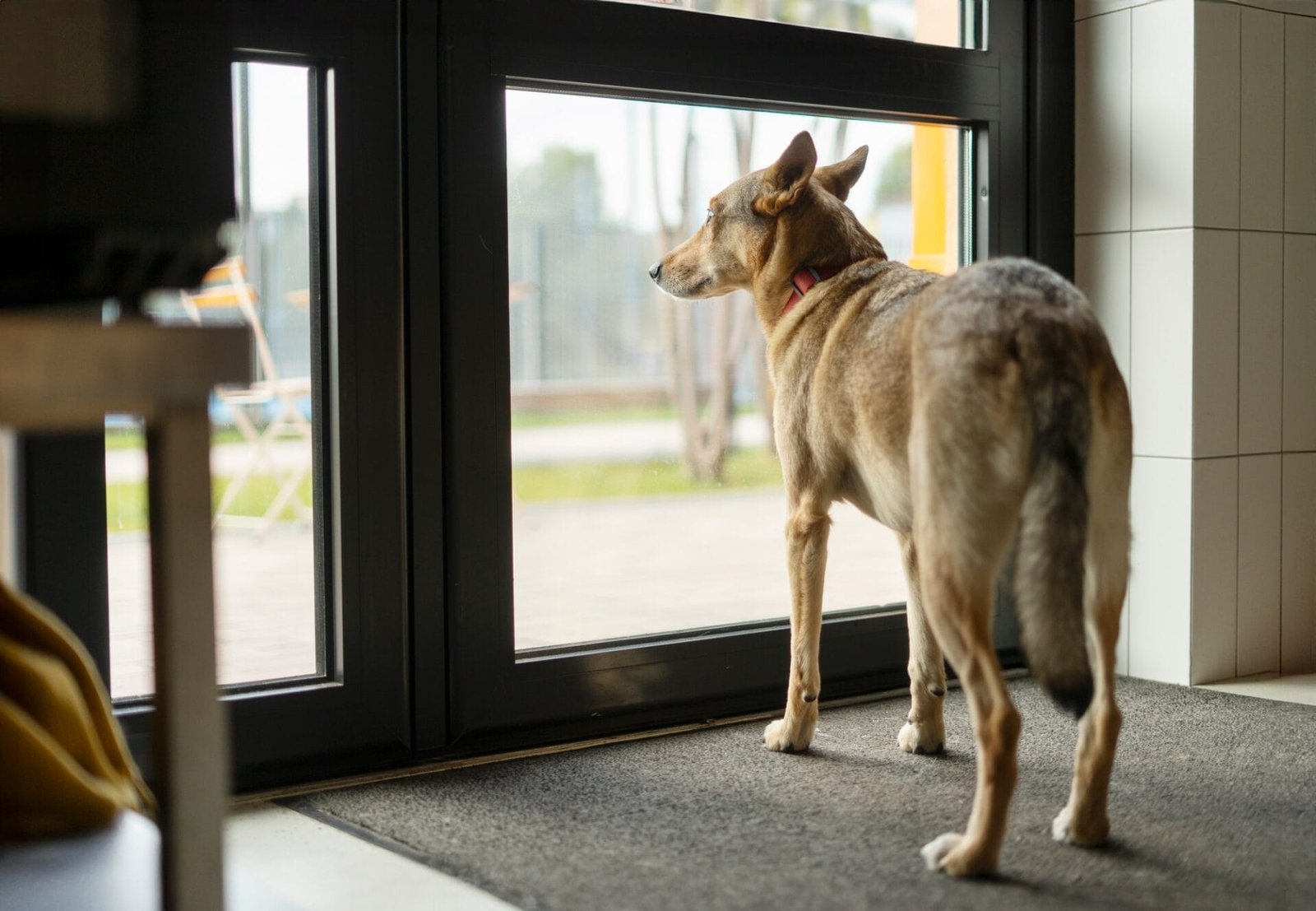Dogs have always held a special place in people's lives. From loyal companions to active workers, they have fulfilled different roles throughout history.
But besides their well-known traits like playfulness, loyalty and intelligence, there are many stories and anecdotes that suggest dogs can see more than we humans can. One of the most intriguing questions that often arises is whether dogs can see ghosts.
The bond between dogs and the supernatural
The relationship between dogs and the supernatural goes far back in human history. In many cultures, dogs are considered guardians and guides between the world of the living and that of the dead. In ancient myths and legends, they are often depicted as companions of gods and spirits, or even as messengers from the afterlife.
The sixth sense of dogs
One of the most fascinating aspects of dogs is their extraordinary sensory perception. In addition to their keen sense of smell and excellent hearing, dogs have an intuition often described as a "sixth sense". They seem to notice subtle changes in their environment that are invisible to humans, such as sensing impending doom or detecting the presence of something or someone invisible to us.
Scientific perspective
Although many people are convinced of dogs' ability to see spirits, the phenomenon remains controversial from a scientific point of view. Scientists believe that dog behaviour often associated with seeing ghosts, such as barking at seemingly empty spaces or exhibiting fearful reactions for no apparent reason, can be explained by more earthly factors such as hearing and smell perception, or simply by imagination.
However, there is a lack of scientific evidence supporting the existence of ghosts, let alone that dogs can see them. However, this does not stop those who are convinced of the paranormal ability of dogs from keeping their faith.
Other possible explanations
Besides the paranormal perspective, there are alternative explanations that can explain dogs' behaviour in relation to ghosts. One common theory is that dogs are extremely sensitive to subtleties in their environment, such as changes in air pressure, electrical activity or even small sounds that are imperceptible to us. These subtle stimuli can affect dogs' behaviour and make them react as if they see or feel something unusual.
Moreover, dogs can be highly empathetic animals, able to read the moods and emotions of their owners. It is possible that the behaviour of dogs associated with seeing ghosts is actually a reaction to the emotional state of the people around them, rather than to a supernatural presence.
Can dogs really see ghosts?
It is a question that has haunted mankind for centuries. Can dogs really see ghosts? However, the answer to this question remains shrouded in mystery and controversy.
Many people strongly believe in the ability of dogs to perceive spirits. They point to the behaviour of dogs that sometimes seems to change when there is no obvious physical cause. This behaviour often includes barking at empty spaces, fixating on a point in the sky as if they can see something we can't, or even exhibiting fearful behaviour for no apparent reason.
Some dog owners have shared personal experiences in which their faithful companions seemed to respond to the presence of something invisible. These stories range from dogs barking at seemingly empty corners of a room to dogs appearing to communicate with invisible entities.
While these anecdotes may be convincing to those who believe in the paranormal, scientific evidence is lacking to support the existence of ghosts, let alone that dogs can see them. Scientists believe that dog behaviour often associated with seeing spirits, such as barking at seemingly empty spaces, is more likely to be explained by more earthly factors such as hearing and smell perception, or by human interpretation of the dog's behaviour.
So it remains a mystery whether dogs are actually capable of perceiving spirits. For some, however, belief in the paranormal ability of dogs remains strong, and their alleged ability to see spirits is likely to remain a subject of debate and fascination as long as human desire for the supernatural continues.
What can dogs see that humans cannot?
Dogs have a number of sensory abilities that differ from those of humans, allowing them to see things that are invisible to us. Some of these things are:
Ultraviolet rays
Dogs have a wider range of the light spectrum than humans, allowing them to see ultraviolet rays. These rays are not visible to the human eye, but dogs can detect them, which allows them to notice subtle changes in their environment that remain hidden to us.
Fast movements
Dogs' eyesight is optimised for detecting fast movements. This dates back to their evolutionary history as hunters. Dogs can detect movements that are too fast for us to see, which helps them track prey or react to potential dangers.
Low light levels
Dogs have better night vision than humans. This is due to a higher number of rods in their retina, which allows them to see better in low light. Unlike humans, who have difficulty distinguishing details in the dark, dogs have no problems orientating themselves and detecting objects.
Movement and body language
Dogs are masters at reading body language, both from other dogs and humans. They can pick up on subtle signals that we often overlook, allowing them to understand how others are feeling or what their intentions are. This skill enables dogs to communicate effectively and respond to the signals they receive.
In short, dogs have unique eyesight that allows them to see the world in a different way from humans. Their ability to perceive ultraviolet rays, detect fast movements, see well in low light and read body language gives them an edge in situations where visual perception is crucial.
Summary
The question of whether dogs can see ghosts remains an intriguing mystery that continues to fascinate scientists and fans of the supernatural alike. Although there is no definitive evidence to support the existence of ghosts, there are numerous personal testimonies suggesting that dogs may be able to perceive something beyond our normal perceptive capabilities.
Whether a paranormal gift, an expression of extraordinary sensory perception, or simply the result of human interpretation, the connection between dogs and the supernatural remains a source of wonder and mystery that will intrigue us for a long time to come.










